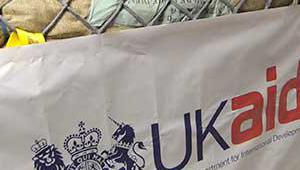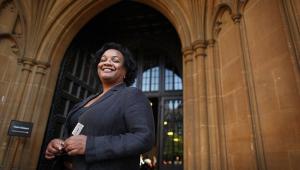The irony of a New Labour government nationalising the commanding heights (commanding depths, actually) of the economy is almost beyond satire. Yet every household in the UK now has £3,000 at stake in the Royal Bank of Scotland and the Lloyds Banking Group.
But, as the old investment warning goes, the value of shares can go down as well as up. Ours, unfortunately, have gone down by more than £10bn since the government stepped in last year to rescue two of the biggest banks – a loss of almost £1,000 per household.
Management of the taxpayers’ shareholding is the responsibility of a newly created, and little known, institution, UK Financial Investments – a company operating at arm’s length from the Treasury. It controls our massive shareholdings in RBS and Lloyds and later this year will take over the government’s stakes in Northern Rock and Bradford & Bingley. Its recently published first annual report makes grim reading, particularly when everyone from City grandee Sir David Walker and shadow chancellor George Osborne is proposing radical reform of the banking sector.
Any investment manager who had shrunk a £34.5bn portfolio to £23.6bn would face anger from investors – but the UKFI can hardly be blamed for the colossal failures at RBS and Lloyds.
The UKFI’s largest losses were incurred at RBS, where it holds slightly under 40 billion ordinary shares – 70% of the voting share capital. This was the result of the government’s £20bn capital investment in the bank in last October last year. The public’s stake is to increase further through the Asset Protection Scheme – with RBS paying the government in shares for insurance underwritten by the state against further losses on assets. This could lead to the UKFI holding £60bn worth of RBS assets, some 84% of its value.
The government rescue of RBS came when it was clear that the bank’s partial acquisition of Dutch bank ABN Amro had been disastrously mistimed and overpriced. For the 2008 year, RBS recorded a loss of £24bn, largely through write-downs related to the ABN-Amro purchase. When the government injected capital into RBS in October, the shares were worth 65.5 pence each – now they are worth less than 40 pence a share.
The UKFI has less at stake in the Lloyds Group – the result of the merger between Lloyds TSB and Halifax Bank of Scotland. The government’s holding here is of almost 12 billion Lloyds shares, 43% of the voting share capital. The stake is likely to increase to 62% of the business – worth almost £33bn – after Lloyds pays the government in shares to insure assets under the Asset Protection Scheme.
Lloyds’ losses mostly relate to unwise lending at HBOS. Lloyds has admitted it failed to undertake proper due diligence before acquiring the bank under pressure from Prime Minister Gordon Brown. Lloyds’ shares were worth 182.5 pence each when the bank was recapitalised by the government last October – now their price is about 70 pence.
The UKFI is expected to support the banks to improve their market position and earn as much as possible for the government when the stakes are sold, hopefully earning a profit for the taxpayer. But there is also pressure on the UKFI and the Treasury to ensure that the banks support government policies while they are largely state-owned. The government could face action for anti-competitive behaviour by the European Union if it shows any favours to the banks it owns.
Arek Ohanissian, an economist at the Centre for Economics and Business Research, believes that the UKFI and the Treasury have got it about right on balance. But he warns that taxpayers could be forced into taking a substantial loss from their shareholdings – even if the banking sector recovers – because of European law on state support for business.
‘The approach they seem to be taking is hands-off, and helping the industry generally rather than the individual banks,’ says Ohanissian. ‘Things are picking up, but they are still at a loss in terms of their investments. Presumably they will be forced out of their position by the EU at some point. Whether they show a return before they are forced out is difficult to tell. They could be forced into a loss.’
Ohanissian says that the various actions taken by the government seem to have helped the finance industry, as a whole, towards recovery. ‘Some of it has been effective,’ he says. ‘Things are moving in the right direction.’ Recognising that the Treasury and the UKFI have faced a massively difficult challenge, Ohanissian is unwilling to criticise them. ‘I am not sure I could point to any one thing they could do to improve their position,’ he says.
Stephen Spratt, chief economist at the New Economics Foundation think-tank, is more critical. He believes that RBS, as a largely state-owned bank, should take taxpayers’ financial interests directly into account and worry less about making a profit while under state ownership. He finds it strange that it continues to operate in tax havens.
‘The government is paying money to institutions that are giving people information to avoid paying money to the very organisations that are funding it,’ Spratt argues. ‘It is a clear example of the massive contradiction at the heart of the system.’
The UKFI’s annual report makes crystal clear the limits placed on its actions by the Treasury and, presumably, ministers. The framework agreement with the Treasury specifies that it will not intervene in the operational management of the banks, dictate the scope of their activities, nor be directly represented on the banks’ boards. Its role, rather, is to intervene where there are concerns in matters such as corporate governance, vote as a shareholder and evaluate and report to the Treasury on the banks’ performance.
The Treasury select committee expressed two particular concerns about the UKFI in a recent report. It doesn’t believe that it has done enough to end the ‘bonus culture’ for senior executives in the rescued banks – citing the fact that incoming RBS chief executive Stephen Hester is entitled to a substantial bonus if he can get the bank’s share price to rise significantly. The MPs were also unhappy that the state-supported banks were not lending more to help boost the economy.
Treasury select committee member Andy Love MP explains: ‘We felt that being as “hands off” as they had indicated they were being meant effectively that little or no pressure was being exerted for banks not to continue to pursue a “business as usual” approach,’ he says. ‘If we are to make a meaningful contribution to the government’s priorities of making more finance available to small businesses and people with mortgages, the UKFI has to take a different and more interventionist line.’
The UKFI insists it is working to improve corporate governance at the banks, within the confines set by its framework agreement with the Treasury.
Glen Moreno, the acting (and unpaid) chair, told the BBC that the UKFI was ‘fully engaged with the banks to improve their management and governance structures’. He added: ‘We simply have to change the system that got us into trouble in the first place.’
Moreno said the UKFI had ensured that the RBS board of management was replaced and is involved in recruiting a new chair at Lloyds. He dismissed concerns raised by both the Conservatives and Liberal Democrats that it would dump its shares in the next few months – without earning a return – just to make the public finances look better before the general election. Moreno said that the UKFI might make some disposals in the next year, but the process would probably continue ‘over the next several years’.
But another point of contention is the stand-in chair himself – Moreno took over the role when Sir Philip Hampton stepped down to become chair of RBS. Moreno has been linked with tax-avoiding Liechtenstein trusts, he was an executive at Citigroup (which has been rescued by the US administration) and remains chair of Pearson, publishers of the Financial Times.
Another UKFI director, Michael Kirkwood, is also associated with Citi, having been its chief country officer for the UK. He is also on the advisory board of PricewaterhouseCoopers.
At the heart of the UKFI – which has just nine staff and a monthly wage bill of about £100,000 – is its chief executive John Kingman, who is on secondment from the Treasury, where he was second permanent secretary, responsible for oversight and budget control. He is a former Treasury managing director and press secretary to the chancellor. Earlier in his career he worked on the Financial Times’ influential Lex column, was a director of the European Investment Bank and worked in the group chief executive’s office at BP.
Other Treasury people also have close involvement with the UKFI, despite the suggestions of loose connections. The chief operating officer is Sam Woods, who is on secondment from the Treasury and was previously seconded to the New Zealand Treasury to manage its interests in state-owned enterprises. CIPFA member and Treasury group finance director Louise Tulett is a UKFI director.
Whether the Treasury and ministers like it or not, the reality is that the UKFI cannot escape its involvement with government. And, however uncomfortable it might be, the organisation will forever remain caught in a conflict of interest between protecting taxpayers’ financial interests and promoting the government’s political interests. It is one more reason why Treasury insiders will start smiling again when those banks’ shares are eventually sold off.




















